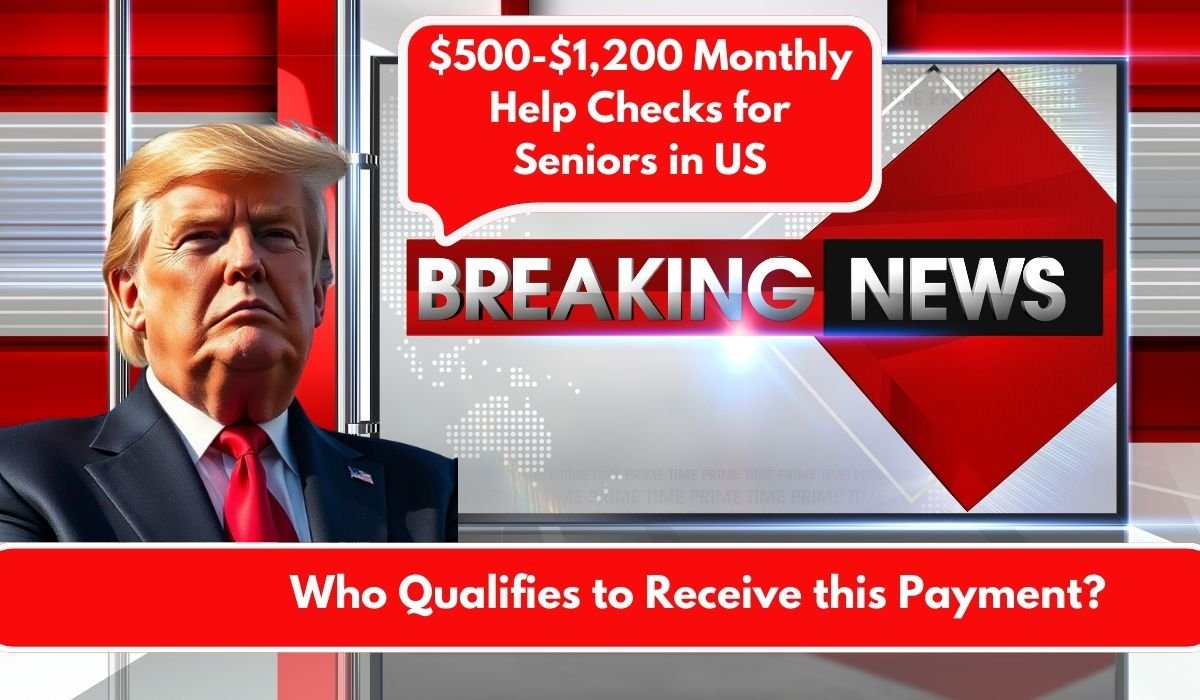Life can get a little tough when you’re living on a fixed income, especially as a senior. With the cost of everything—food, rent, medicine—going up, many older adults are left wondering how they’ll make ends meet. That’s where monthly help checks, ranging from $500 to $1,200, come into play. These support payments are designed to ease some of that financial pressure. But who exactly qualifies for them? And how can you apply?
What Are These Monthly Help Checks?
These payments are not random handouts—they’re part of different federal, state, or local programs set up to assist seniors. The goal? Help cover basic needs like housing, food, healthcare, and daily expenses. These help checks can come from programs such as Supplemental Security Income (SSI), Social Security, state senior assistance programs, or even veterans benefits.
Some are directly from the government, while others are through nonprofit agencies. But they all share one purpose: helping older Americans live with dignity and less financial stress.
Why Are Seniors Getting These Payments?
Let’s be real—retirement isn’t cheap. Many seniors didn’t save enough for retirement or have outlived their savings. Add in rising prices, medical bills, and rent, and you’ve got a recipe for financial strain.
These monthly help checks are designed to fill in those financial gaps. Think of them like a safety net that stops you from falling too far when life hits hard.
Who Qualifies for These Payments?
Now, this is the big question.
Not every senior automatically qualifies, but if you fit into some of these categories, you might have a good chance:
Low Income
If your income is below a certain level (varies by program and state), you may qualify for programs like SSI or state-based senior assistance.
Age Requirement
Most programs start at age 60 or 65 and up. Some make exceptions for people with disabilities.
Disability or Health Condition
If you’re living with a disability or chronic illness, even if you’re younger than 65, you might be eligible.
U.S. Citizenship or Legal Residency
You typically need to be a U.S. citizen or legal resident with proper documentation.
Limited Assets
Some programs will check your bank accounts and assets. If you don’t have much saved up, that works in your favor for getting help.
How Do You Apply?
It might seem overwhelming at first, but the application process is pretty straightforward once you know where to start.
Start with Social Security
If you’re already getting Social Security, contact the Social Security Administration (SSA). You can call them or apply online for programs like SSI.
Check with Your Local State Office
Every state has its own senior assistance programs. Search for your state’s Department of Aging or Department of Human Services.
Use Senior Resource Websites
Websites like Benefits.gov or Eldercare Locator can show you what programs you’re eligible for.
Ask for Help
Don’t be afraid to ask someone you trust to help you fill out forms. There are also free community centers and nonprofit groups that help seniors apply.
What Can These Payments Be Used For?
That’s the good part—there’s no strict rule on how you must use the money. You can spend it on whatever helps you live better:
- Rent or utility bills
- Groceries
- Prescription medications
- Transportation
- Home repairs or safety upgrades
Basically, it’s your money to support your daily needs.
Are These Payments Permanent?
Some programs offer ongoing monthly payments, while others may only provide temporary aid. The best way to find out is by asking about the length of benefits when you apply. You may need to reapply each year or report any income changes.
Conclusion
Let’s face it—getting older shouldn’t mean struggling every month just to get by. These $500 to $1,200 help checks can make a huge difference for seniors across the U.S. If you or a loved one are a senior with limited income or health challenges, it’s worth exploring all the support options out there. You might be surprised by how many resources are available—you just need to know where to look and how to apply.
Don’t wait. These programs are there to help you, and you deserve peace of mind in your golden years.
FAQs
Who can apply for monthly help checks?
Seniors aged 60 or older with low income or disabilities can often qualify, depending on the program and state.
Do I have to be a U.S. citizen to receive help checks?
Generally, yes. You must be a U.S. citizen or legal resident with valid documentation.
Can I still work and receive senior help checks?
It depends on the program. Some allow limited income from work; others may reduce your benefit.
Where can I get help with the application?
Community centers, nonprofit agencies, or even local libraries often offer free help with filling out forms.
Is this the same as Social Security?
Not always. Some programs are separate from Social Security and are based on need, not work history.





